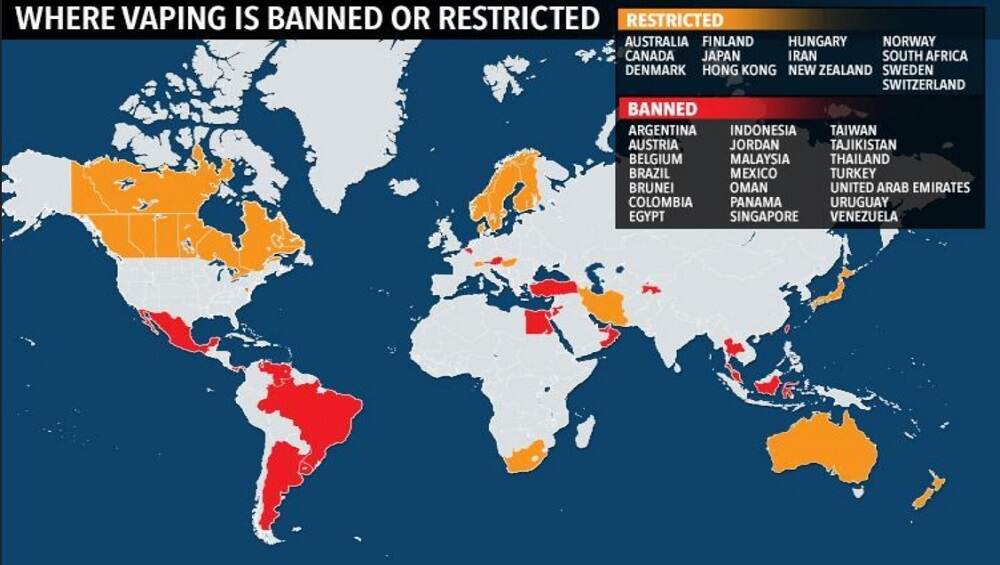A 38-year-old man in Florida, U.S. was killed when his vape pen (e-cigarette) exploded, sending projectiles into his head and causing a small fire in his house.
Tallmadge D’Elia’s death could be one of the first deaths from an e-cigarette malfunction. D’Elia was found on May 5 in the burning bedroom of his family’s home in St. Petersburg, according to the Tampa Bay Times. An autopsy report released this week blamed a vape pen explosion for his death, local news outlets reported.
The autopsy lists cause of death as “projectile wound of head” — when the pen exploded, at least two pieces of shrapnel struck him in there. Moreover, the victim suffered burns on about 80 percent of his body.
According to a report by the U.S. Fire Administration, while there have been at least 195 incidents in which a vape pen or e-cigarette exploded or caught fire between 2009 and 2016, no deaths were reported in that time period. However, those incidents did result in 133 injuries, 38 of which were severe.
The explosions generally are sudden, “and are accompanied by loud noise, a flash of light, smoke, flames, and often vigorous ejection of the battery and other parts.” A majority of the incidents also started fires in or on nearby objects.
“No other consumer product places a battery with a known explosion hazard such as this in such close proximity to the human body,” the Fire Administration’s report notes. “It is this intimate contact between the body and the battery that is most responsible for the severity of the injuries that have been seen. While the failure rate of the lithium-ion batteries is very small, the consequences of a failure, as we have seen, can be severe and life-altering for the consumer.”
Electronic cigarettes, or e-cigarettes, and other electronic nicotine delivery systems (ENDS), alternative nicotine delivery systems (ANDS) or vapourised nicotine products (VNPs) are devices that heat a liquid, commonly propylene glycol and/or glycerol (glycerin), to create an inhalable aerosol that can contain nicotine, as explained by the John Hopkins Bloomberg School of Public Health, U.S.
The health effects related to the ingestion of e-cigarette vapor are still being studied by government agencies and are currently not regulated in any manner in the U.S. However, countries like Dubai, Turkey, Thailand and Egypt have made vaping illegal following advice from the World Health Organisation.

Digital Trends reports that the U.S. Food and Drug Administration has a few safety recommendations with regard to e-cigarettes and vape pens.
The agency cautions users from carrying e-cig batteries loose in their pockets, “especially where they might come into contact with coins, keys or other metal objects which can cause the battery to short out.”
You should also avoid using your phone or tablet charger to recharge your device. Only use the charger that was intended for the e-cigarette. Furthermore, you shouldn’t charge your vape while sleeping or leave it unattended, and should always charge it on a flat surface away from anything flammable. If batteries are damaged or get wet, replace them, and don’t mix and match different battery brands or old and new power sources. Finally, avoid altering the device, and do not leave it in extreme temperatures, such as in direct sunlight or in a freezing car overnight.
(The above story first appeared on LatestLY on May 18, 2018 09:25 AM IST. For more news and updates on politics, world, sports, entertainment and lifestyle, log on to our website latestly.com).













 Quickly
Quickly





















